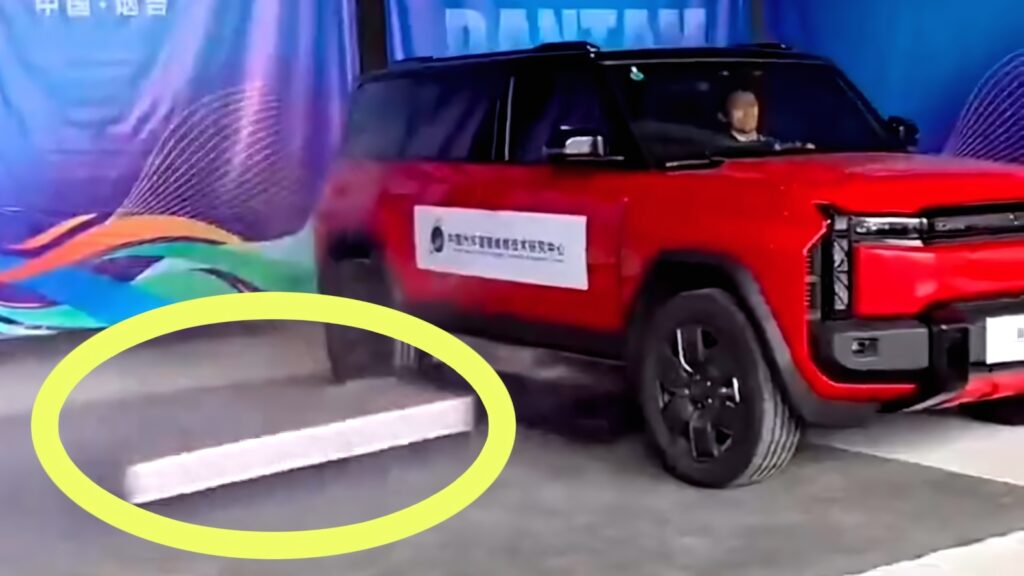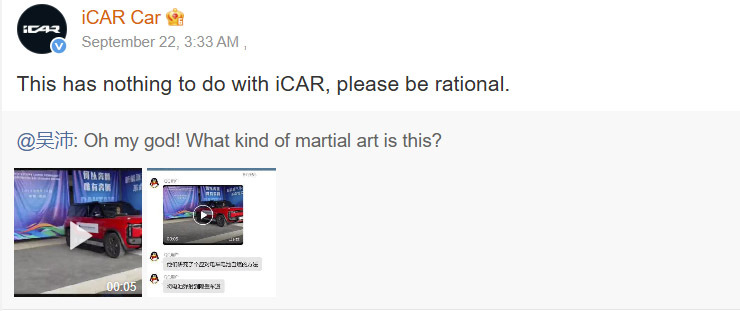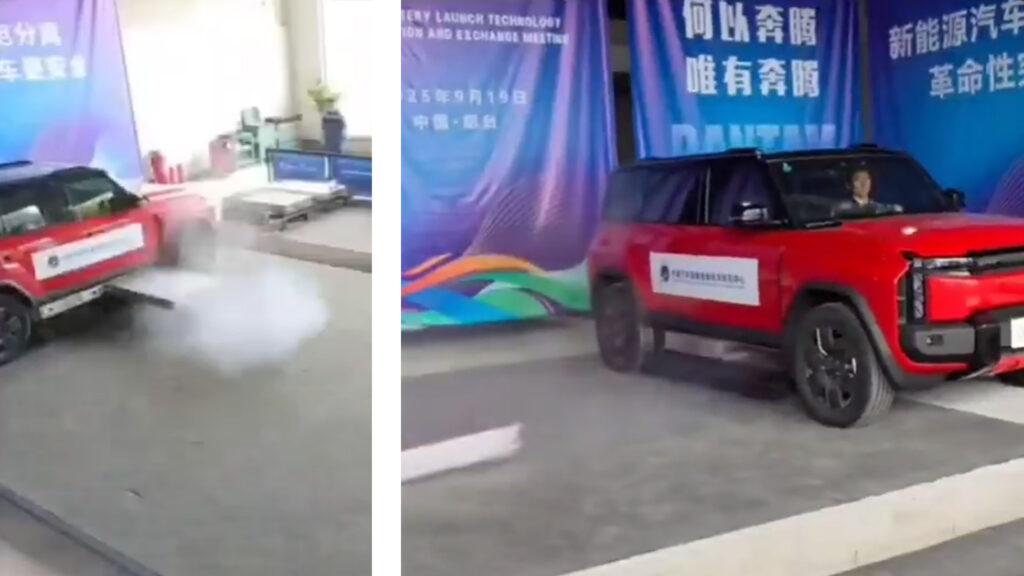China’s EV Fire Fix Shoots Battery Into Traffic And Makes It Their Problem

- Chinese firm tests battery ejection tech to prevent fires in electric cars.
- The demo sparked debate over safety risks to traffic and pedestrians.
- Chery iCar 03T used in trial, though automaker denies any involvement.
EV fires, notoriously difficult to extinguish once they start, remain one of the toughest challenges for carmakers. Engineers continue racing to design battery packs resilient enough to survive crashes without igniting. In China, however, a very different approach has been showcased: a high-speed ejection system that literally launches the pack away like a projectile from the vehicle during an emergency.
If that sounds less like a safety breakthrough and more like and accident waiting to happen, you’re getting the idea. And yes, it really is that stupid.
Battery Launcher
The unusual demonstration was captured in a video that went viral on Chinese social media. The clip shows a large battery module violently shooting out of the side of an SUV before smoke appears. Safety workers quickly smothered the pack with a special blanket after it landed in a designated area with pillows.
More: See What Happens When Two Cars Hit A Chinese EV At 60KM/H In Triple Crash Test
According to Chinese reports, the system works in much the same way as an airbag. If sensors detect a thermal event in the pack, the system can trigger an ejection in less than a second, flinging the battery between 3–6 meters (10–20 feet) away from the vehicle. The idea is to protect occupants from a potential fire or even an explosion.
Good Luck Everyone Else
Of course, as many commenters pointed out, “somewhere else” could just mean straight into another moving car, onto pedestrians, or across live traffic. A battery pack that weighs hundreds of kilos is about as far from harmless as a projectile can get. And in the kind of heavy crash where fires are most likely, the car’s structure could crumple enough to jam the system anyway, leaving you with both the fire and the deadweight still on board.
Who Staged the Demo?
Here’s where it gets interesting. While we couldn’t find official information, markers on the SUV suggest the test was organized by the China Automotive Collision Repair & Technology Research Center. Stage graphics show it took place during the “Power Battery Launch Technology Demonstration and Exchange Meeting” on September 19, 2025.
More: Chinese Government’s Hunt For Online Car Slander Has Begun
The prototype appears to be based on the iCar 03T, though the automaker quickly distanced itself from the experiment. Posting on its Chinese social media accounts, the Chery-owned brand stated: “This has nothing to do with iCAR, please be rational.” Reports also claimed that Joyson Group may have collaborated on the project, but the company has since denied involvement, according to Epoch Times.

For all the spectacle, the so-called missile-style ejection system is a dead end. Lobbing a half-ton battery into traffic is not a safety feature, it’s a liability with wings. And in the real-world crashes where it might matter, the mechanism itself would likely be wrecked before it ever fired.
